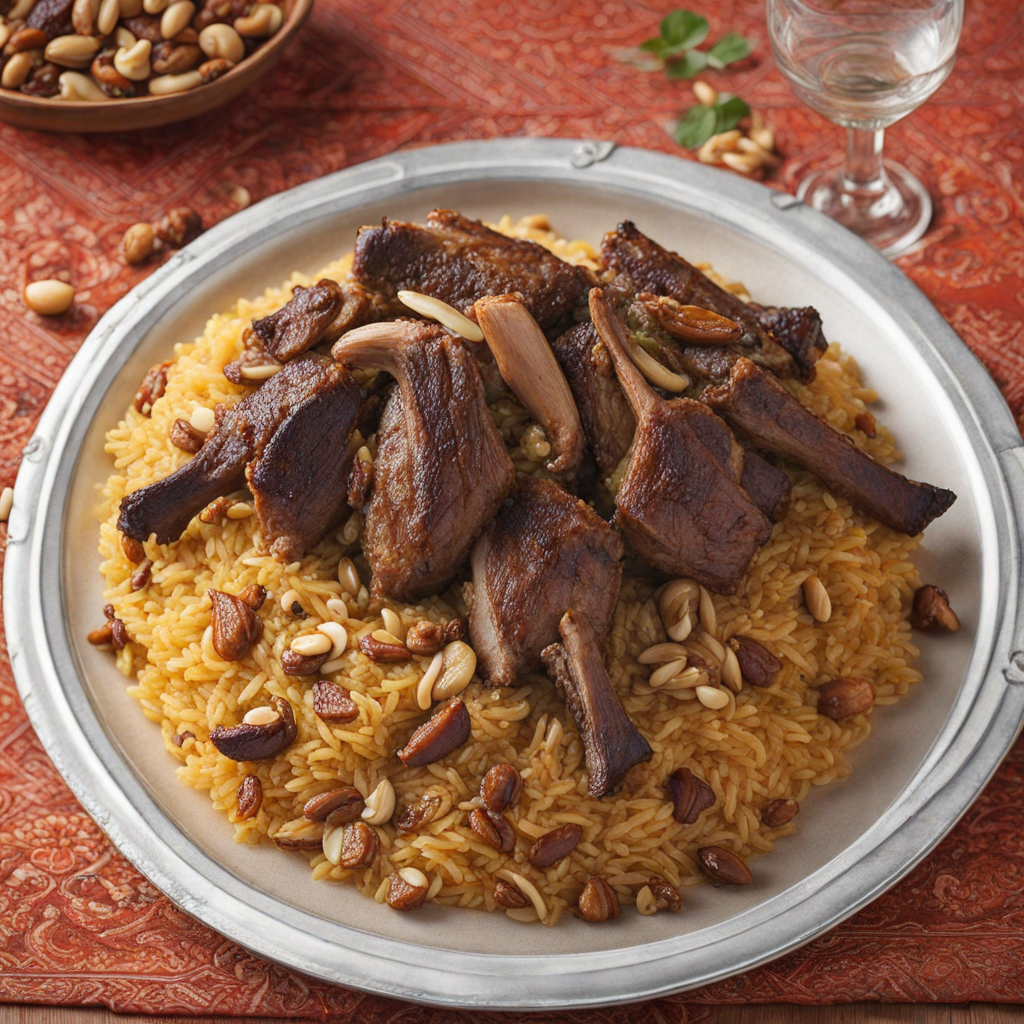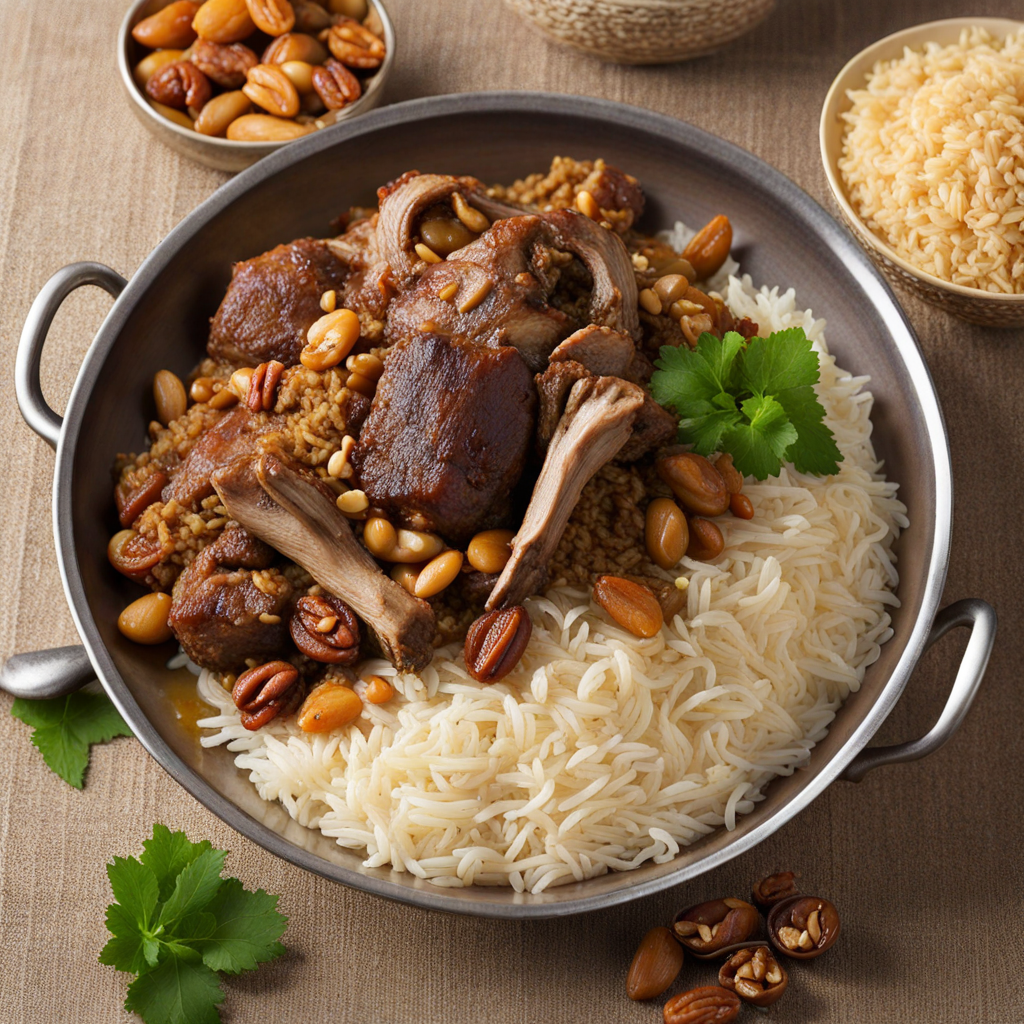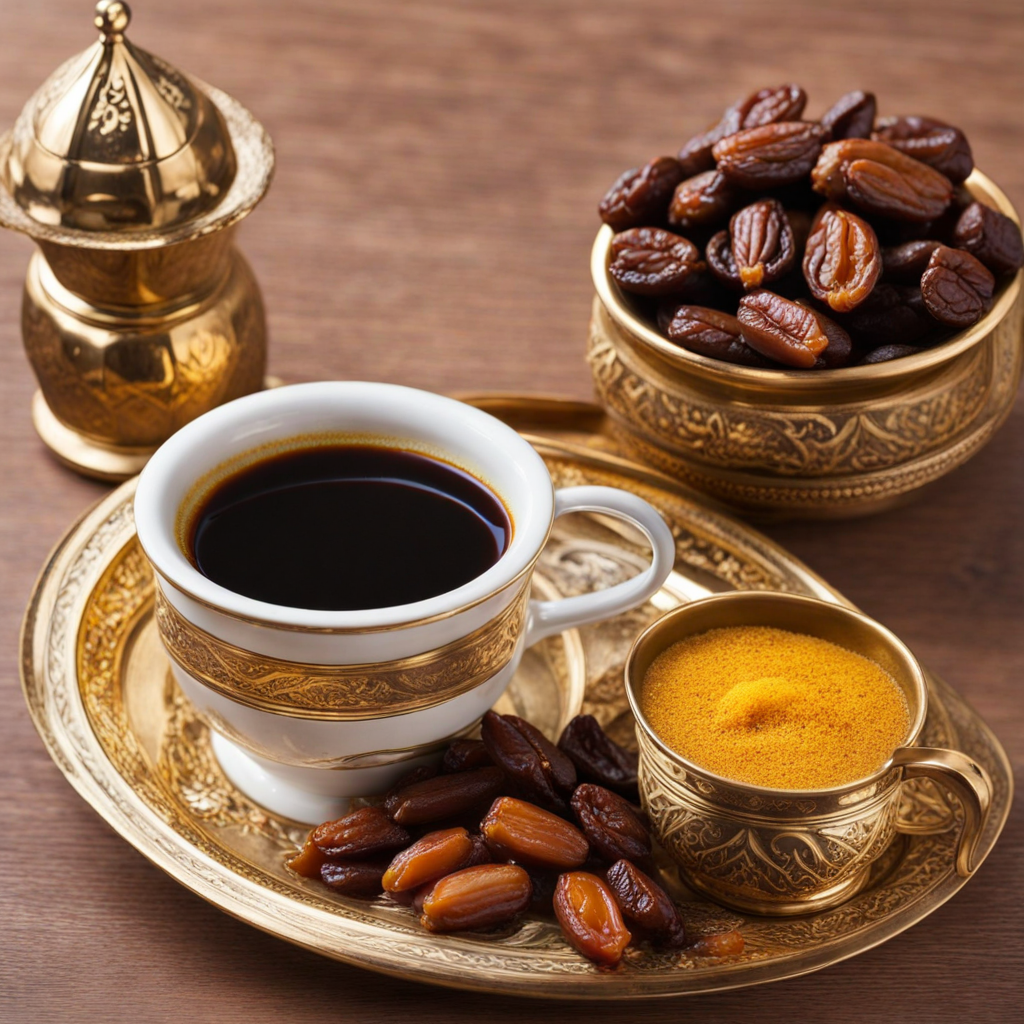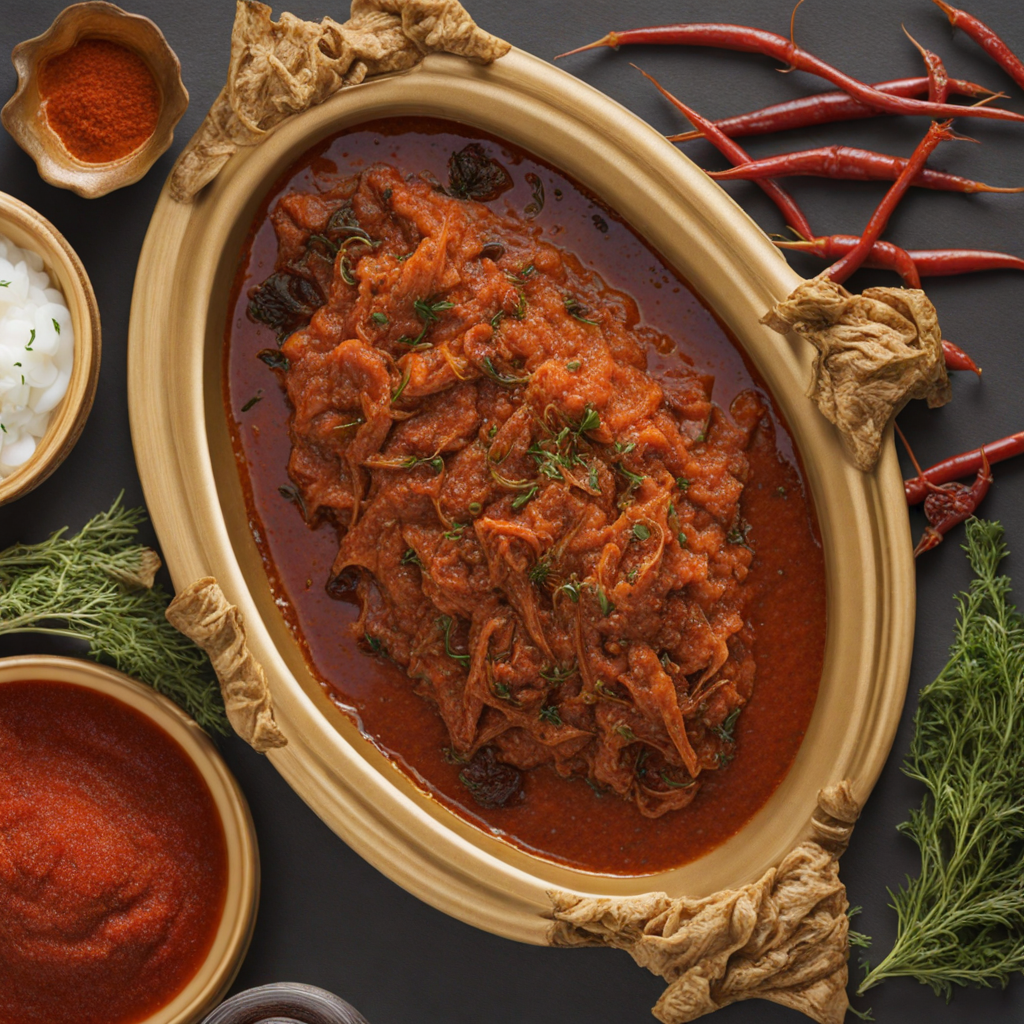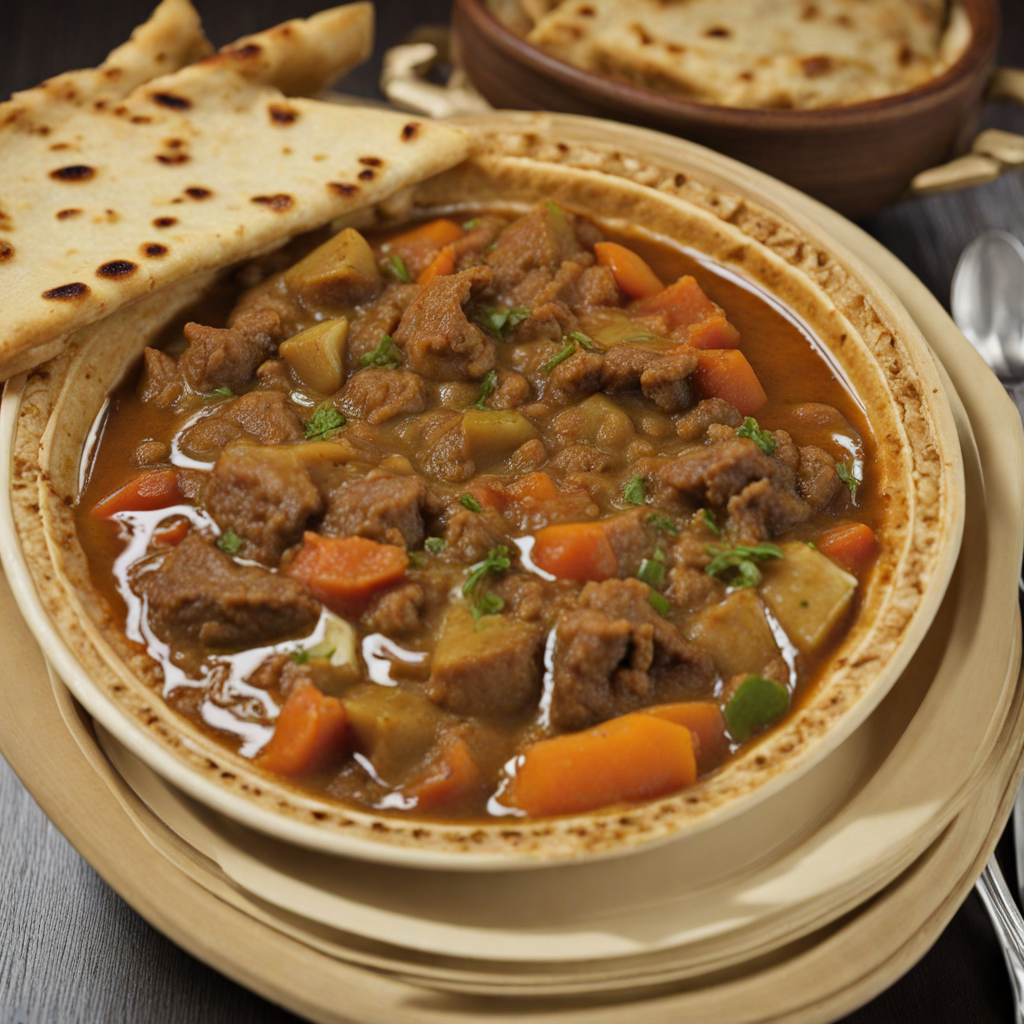Khuzi
Khuzi is a traditional Emirati dish that beautifully showcases the rich culinary heritage of the United Arab Emirates. At its core, Khuzi consists of tender, slow-cooked lamb or goat that is marinated with a blend of aromatic spices such as cumin, coriander, and cardamom. The meat is often served atop a bed of fragrant, spiced rice, which absorbs the delectable flavors of the meat during the cooking process. This dish is a true celebration of flavor and texture, making it a favorite among locals and visitors alike. The preparation of Khuzi is an art form, often involving a meticulous process that can take several hours. The meat is typically cooked until it is fall-off-the-bone tender, and the rice is infused with a rich broth that enhances its taste. Accompanying the dish are usually roasted nuts, raisins, and sometimes even fried onions, which add a delightful crunch and sweetness to each bite. The combination of the succulent meat, the aromatic rice, and the assortment of toppings creates a symphony of flavors that is both comforting and indulgent. Served traditionally on a large platter, Khuzi is not just a meal but a communal experience, often enjoyed during gatherings and celebrations. Diners are invited to dig in with their hands, embracing the rich cultural significance of sharing food. This dish encapsulates the essence of Emirati hospitality, where food is not only nourishment but a way to bring people together. For those looking to explore new tastes, Khuzi offers a delicious glimpse into the heart of Emirati cuisine, leaving a lasting impression on the palate and spirit alike.
How It Became This Dish
The History of خوزي: A Culinary Gem of the United Arab Emirates Origin and Etymology The dish خوزي (Khuzi) is a beloved staple of Emirati cuisine, deeply rooted in the cultural tapestry of the United Arab Emirates (UAE). The term "Khuzi" is derived from the Arabic word "خوز," which refers to the traditional cooking method that involves slow-roasting meat. Its origins can be traced back to the Bedouin tribes of the Arabian Peninsula, who relied on the rich agricultural and pastoral resources of the region. The Bedouins were known for their hospitality and communal feasting, and Khuzi emerged as a centerpiece in their culinary traditions. Historically, the dish is made by marinating a whole lamb or goat with an array of spices, including cumin, coriander, and cardamom. The meat is then cooked slowly, often buried in the ground or in a specially designed clay pot, allowing the flavors to meld beautifully. The method of cooking reflects the resourcefulness of the Bedouins, who adapted their techniques to the harsh desert environment. Cultural Significance Khuzi holds profound cultural significance in the UAE. It is not merely a dish; it is a symbol of generosity and hospitality. Traditionally, serving Khuzi at gatherings, weddings, and festive occasions signifies respect and honor to guests. The dish is often accompanied by rice, vegetables, and a variety of side dishes, creating a communal dining experience that fosters social bonds. In Emirati culture, food is a means of storytelling and a way to connect generations. Khuzi is often prepared during significant events such as Eid al-Adha, where families come together to celebrate and share the blessings of the season. The preparation of Khuzi can also serve as a rite of passage, where younger family members learn the art of cooking from their elders, preserving traditional methods and flavors. Development Over Time As the UAE evolved from a collection of tribal communities into a modern state, so did its culinary landscape. The discovery of oil in the mid-20th century brought about economic prosperity, resulting in an influx of diverse influences from around the world. This globalization introduced new ingredients and techniques, enriching the already vibrant Emirati cuisine while still honoring its traditional roots. In the mid-20th century, Khuzi began to gain popularity beyond Bedouin circles. It became a staple in urban areas, particularly in Dubai and Abu Dhabi, where expatriates and tourists were introduced to the dish. This exposure led to the emergence of restaurants specializing in traditional Emirati dishes, including Khuzi, making it accessible to a wider audience. The dish became a symbol of Emirati identity, fostering a sense of pride among locals and sparking interest among visitors. The preparation and presentation of Khuzi have also evolved over the years. While the traditional method of cooking in the ground remains popular, modern techniques such as roasting in ovens or using barbecue grills have been adopted. Chefs experiment with the spices and marinades, adding a contemporary twist while still respecting the essence of the dish. Some variations even incorporate fusion elements, blending Emirati flavors with international cuisines. Khuzi in Contemporary Society In today's UAE, Khuzi continues to be a cherished part of culinary heritage. Food festivals, cultural events, and competitions often feature Khuzi, celebrating its role in Emirati culture. Social media has also played a significant role in promoting traditional dishes, with food bloggers and influencers showcasing Khuzi to a global audience. Moreover, Khuzi reflects the UAE's commitment to preserving its cultural identity amid rapid modernization. The government has initiated various programs to promote local cuisine, encouraging restaurants to serve traditional dishes and educating the younger generation about their culinary heritage. Schools and community centers now offer cooking classes that include Khuzi, ensuring that the knowledge of preparing this beloved dish is passed down to future generations. Conclusion The journey of خوزي from its humble Bedouin origins to a modern emblem of Emirati cuisine illustrates the resilience and adaptability of food culture. Khuzi is more than just a dish; it is a testament to the rich history, communal values, and identity of the Emirati people. As the UAE continues to evolve, Khuzi remains a cherished link to the past, a symbol of hospitality, and a flavorful expression of cultural pride. As you savor a plate of Khuzi, you partake in a tradition that spans generations, experiencing the warmth of Emirati hospitality and the depth of a culinary heritage that continues to thrive in the heart of the desert.
You may like
Discover local flavors from United Arab Emirates


